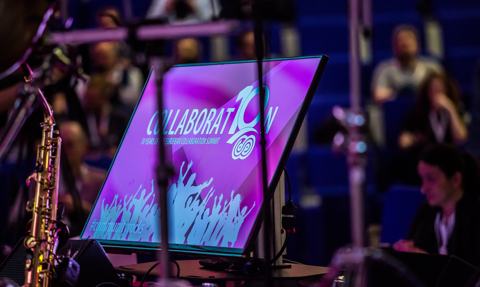7 event ticket types you need to know


In the age of in-person, hybrid, and virtual events, some event organizers find navigating different event ticket types and pricing strategies hard. As ticket prices profoundly affect the event’s success and revenue, finding the right balance between pricing and content increases your chances of having an event packed with keen participants. Offering multiple event ticket types and different pricing stages should enable event organizers to target various groups of attendees to self-segment and purchase a ticket that fits their needs and budget.
Different event ticket types help potential attendees to psychologically connect with the event, as they tend to describe and summarize personal preferences regarding the event, conference, or music festival experience.
Let’s review the major ticket types:
1) General admission ticket
These tickets allow attendees to enter the event and give them access to regular activities such as visiting multiple tracks, lounge areas and limited catering options.
2) Luxury tickets (VIP)
VIP tickets provide an All-Access-Areas pass (‘AAA’) that includes everything your event offers (i.e., workshops, speakers’ dinners and special networking opportunities). Event organizers offer VIP tickets to provide a privileged experience and a sense of exclusivity.
3) Group package tickets
Group packages are beneficial to event organizers and attendees. They are used by companies for their employee’s career development and are priced at affordable rates. The bigger the group, the higher the discount, varying between 20-25%.
4) Reserved tickets
Reserved tickets are usually used when organizing fundraisers or seated concerts, but they can also be an exciting incentive if you have popular speakers at your conference.
5) Hidden tickets
In most cases, organizers exclusively publish hidden tickets for certain groups, such as sponsors, media and exhibitors, which are unavailable to the general public.
6) Virtual/hybrid passes
Virtual and hybrid passes emerged during the COVID-19 pandemic and are here to stay. They ensure safety for attendees who want to participate from home or offer accessibility for those unavailable to visit in person.
7) Single or multi-day tickets
This ticket type usually exists to provide multiple affordable options but is also aimed at attendees who aren’t willing to spend any longer than needed at your event (e.g., usually common for business-type events or conferences).
Once you decide on the mix of event ticket types, the most critical step is to define the pricing options.
Defining multiple pricing stages allows attendees to engage based on their personal or annual budgets, depending on the importance of personal or psychological value.
The following ticket stages are recommended when aligning with the purchasing intentions of your attendees:
You can offer discounts based on a decreasing curve at each pricing stage to incentivize purchases according to different factors (e.g., use the Early Bird Stage to offer the biggest discounts to loyal customers). Organizers can maintain automated price increases using specialized platforms like run.events and offer some additional options for comprehensive ticket management:
As some attendees still feel the effects of restrictive policies implemented during the COVID-19 pandemic, hybrid events are a good way of embracing inclusivity and offering your concept and values to a wider audience. Remind yourself to create a specific pricing strategy for those attending your event online.
With the right event management platform, virtual attendees can engage with speakers and panelists via real-time chat, surveys and Q&A sessions, providing an almost immersive experience as being there in person. We suggest having general admission and privileged ticket categories with considerably lower pricing strategies.
Event tickets have a major effect on event industry outcomes, as every ticket has attributes that allow organizers flexibility to achieve revenue goals and attract a diverse audience. Making careful decisions on event ticket types brings your event closer to success while building a satisfied and growing audience base.